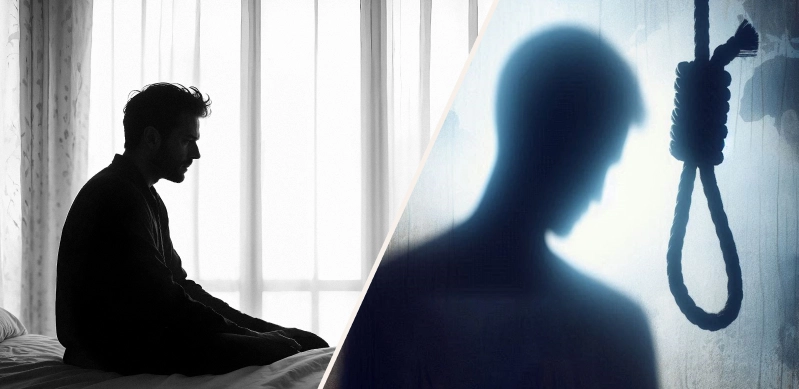
Why You Might Feel Unmotivated Yet Not Depressed and How to Reclaim Your Drive
Why You Might Feel Unmotivated Yet Not Depressed and How to Reclaim Your Drive Feeling unmotivated can be a puzzling experience, especially when you’re not

Have you ever wondered what happens when you stop taking Pristiq, or any medication for that matter, aimed at improving mental health? The process of withdrawal can be a daunting and mysterious journey, marked by a range of symptoms that can disrupt your daily life. While many medications used to treat mental health conditions can pose withdrawal challenges, Pristiq (desvenlafaxine) is known for its distinct set of difficulties.
Understanding these symptoms and the timeline of withdrawal is crucial for anyone considering discontinuation. In this blog, we will explore the specifics of Pristiq withdrawal, compare it to other mental health medications, and provide expert tips to help you manage the process smoothly.
Pristiq is the brand name for desvenlafaxine, which is a prescription medication commonly used to treat major depressive disorder (MDD) and certain anxiety disorders. As a serotonin-norepinephrine reuptake inhibitor (SNRI), it works by balancing chemicals in the brain that affect mood and emotional state.
By enhancing the levels of serotonin and norepinephrine, Pristiq helps to alleviate symptoms of depression and anxiety, providing relief to many individuals who struggle with these conditions.
It is often prescribed when other treatments have not been effective or when a more targeted approach is needed.
While Pristiq withdrawal can certainly be tough, it is not life-threatening. The idea of withdrawal often brings up concerns about severe health risks, but in reality, the process, though uncomfortable, is rarely dangerous.
It’s crucial to remember that with proper medical guidance and a carefully managed tapering plan, you can navigate withdrawal safely.
Your healthcare provider will be your best ally in ensuring that the process is as smooth and manageable as possible, addressing any challenges that arise along the way.
There are several reasons why someone might need to withdraw from Pristiq. One common reason is the pursuit of better medication options if the current treatment isn’t effectively managing symptoms or if side effects are intolerable.
Sometimes, individuals might need to stop Pristiq due to underlying health conditions or drug interactions that make continued use unsafe. Additionally, personal choices, such as a decision to explore alternative therapies or a desire to reduce medication dependency, can also prompt a withdrawal.
Regardless of the reason, it’s essential to undertake this process under medical supervision to ensure a safe transition and address any potential challenges along the way.
Withdrawing from Pristiq can lead to a variety of symptoms as your body adjusts to the absence of the medication. These symptoms can range from mild to severe, and their intensity can vary depending on factors such as dosage and duration of use. It’s important to be aware of what to expect and to seek guidance from a healthcare provider to manage these symptoms effectively.
Common Symptoms:
Severe Symptoms:
The timeline for Pristiq withdrawal can vary, but symptoms typically begin to surface within the first 24 hours after discontinuation. This quick onset is due to the medication’s relatively short half-life of about 11 hours, which means the drug’s concentration in your body drops rapidly.
Withdrawal symptoms generally start to appear within a day and can persist for anywhere from a few days to up to two weeks. Physical symptoms such as nausea, headaches, and trouble sleeping usually resolve relatively quickly.
However, mood changes, irritability, and depressive symptoms might extend beyond this period, potentially lasting longer and sometimes transitioning into post-acute withdrawal symptoms (PAWS) if they continue beyond two weeks.
Managing Pristiq withdrawal effectively requires a thoughtful approach and support. To ease the transition, it’s important to taper off the medication gradually under the guidance of a healthcare provider. This helps minimize withdrawal symptoms and allows your body to adjust more smoothly.
Staying hydrated, maintaining a balanced diet, and getting regular exercise can also support your overall well-being during this period. Additionally, seeking emotional support through counseling or support groups can help address mood changes and provide strategies for coping.
Over-the-counter medications may alleviate certain symptoms like headaches or nausea, but always consult with your healthcare provider before using them. By combining these strategies, you can better manage Pristiq withdrawal and navigate the process with greater ease.
Coping with Pristiq withdrawal involves adopting strategies that support both physical and emotional well-being. Implementing a range of coping mechanisms can significantly ease the transition and help manage symptoms effectively. From establishing a healthy routine to seeking professional support, various strategies can make the process more manageable.
Getting adequate rest is crucial during withdrawal. Quality sleep helps regulate mood and reduces fatigue, which can alleviate some of the physical symptoms associated with Pristiq withdrawal. Establishing a consistent sleep schedule and creating a restful environment can promote better sleep.
Regular physical activity can boost mood, increase energy levels, and improve overall well-being. Exercise releases endorphins, which can counteract some of the depressive symptoms and help with managing stress and anxiety during withdrawal.
Engaging in therapy provides a valuable space to discuss emotional challenges and develop coping strategies. A therapist can offer personalized support, help you navigate mood changes, and provide techniques to manage anxiety and stress effectively.
In some cases, your healthcare provider might recommend medications to manage specific withdrawal symptoms. These can include anti-nausea medications or short-term antidepressants to help stabilize mood. Always consult with your provider before starting any new medication.
Steering clear of alcohol and recreational drugs is essential during withdrawal. These substances can interfere with the body’s adjustment process and exacerbate withdrawal symptoms, making the transition more difficult.
Connecting with others who are going through similar experiences can provide emotional support and practical advice. Online support groups offer a platform to share experiences, learn from others, and gain encouragement throughout the withdrawal process.
Maintaining a self-care routine that includes healthy eating, hydration, and relaxation techniques can significantly aid in managing withdrawal symptoms. Incorporating activities that you enjoy and that promote relaxation can enhance your overall well-being and resilience.
Pristiq withdrawal typically begins within 72 hours after discontinuing the medication and can last anywhere from four to six weeks. The duration and intensity of withdrawal symptoms largely depend on factors such as the dosage you were taking and the length of time you were on the medication.
For some individuals, symptoms may resolve more quickly, while others may experience a longer duration of discomfort. It’s important to be patient and work closely with your healthcare provider to manage symptoms and ensure a safe and effective withdrawal process.
Pristiq withdrawal requires careful management and support to ease the transition. While withdrawal symptoms can be challenging, understanding the timeline, recognizing potential side effects, and employing effective coping strategies can help mitigate discomfort. By working closely with your healthcare provider and incorporating supportive practices, you can better handle the withdrawal process and move towards a healthier state of well-being.
If you have concerns or need assistance, don’t hesitate to seek professional guidance to ensure a smoother and safer journey through Pristiq withdrawal.
Question 1: Is there a pattern in bipolar episodes?
Ans: Bipolar episodes often follow a cyclical pattern, but the frequency and duration can vary widely among individuals. Many people experience a series of manic and depressive episodes over time, with periods of stability in between. These cycles can range from a few weeks to several months.
Question 2: Can bipolar turn into schizophrenia?
Ans: Bipolar disorder and schizophrenia are distinct mental health conditions, though they share some overlapping symptoms, such as delusions and hallucinations. Bipolar disorder does not “turn into” schizophrenia, but some individuals may develop symptoms of schizophrenia or a related disorder if their bipolar disorder is not well managed.
Question 3: What do bipolar delusions look like?
Ans: Delusions in bipolar disorder, particularly during manic or mixed episodes, often involve grandiose beliefs or paranoia. For example, an individual might believe they have special powers or an important mission, or they might feel that others are plotting against them. These delusions are typically intense and can significantly impact daily functioning and relationships.
Question 4: How long does a bipolar psychotic episode last?
Ans: The duration of a bipolar psychotic episode can vary, but it generally lasts from a few days to several weeks. The length of the episode can be influenced by the individual’s treatment and management of their bipolar disorder. Effective medication and therapy can help reduce the duration and severity of psychotic episodes, leading to quicker stabilization and recovery.

Why You Might Feel Unmotivated Yet Not Depressed and How to Reclaim Your Drive Feeling unmotivated can be a puzzling experience, especially when you’re not

All You Need to Know About Dissociative Identity Disorder (DID) Are you waking up each day not quite sure who you are or why your

Mixed Bipolar Disorder: An Expert Guide Have you ever felt like your emotions were a whirlwind, where intense highs and crushing lows collided all at
